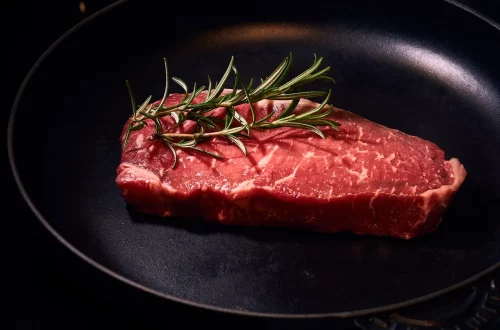
The Benefits of Gluten Free Cat Food for Your Feline Friend
As a pet owner, ensuring that your feline friend receives a nutritious and balanced diet is one of the most significant responsibilities you have. The food you choose can greatly impact your cat’s overall health, energy levels, and longevity. While traditional cat food has long been the norm, an increasing number of cat owners are exploring alternative dietary options, including gluten-free cat food.
Gluten-free diets are often associated with humans, particularly those with gluten sensitivities or celiac disease. However, the benefits of such diets can extend to our pets as well. Cats, being obligate carnivores, have specific nutritional needs that may not align with the gluten-heavy grains present in many commercial cat foods. Understanding the advantages of gluten-free options can help you make informed decisions for your cat’s dietary needs.
In recent years, the market for gluten-free pet foods has expanded, driven by a growing awareness of pet health and wellness. Many brands now offer gluten-free formulations that cater to cats with specific dietary needs or sensitivities. This shift reflects an evolving perspective on pet nutrition, emphasizing the importance of natural ingredients and holistic approaches to animal care.
Ultimately, the choice of diet can influence your cat’s happiness, vitality, and overall well-being, making it essential to consider the various options available. Let’s delve deeper into the benefits of gluten-free cat food and how it can contribute to a healthier lifestyle for your furry companion.
Understanding Gluten and Its Impact on Cats
Gluten is a mixture of proteins found in wheat and other grains, such as barley and rye. While gluten is a staple in many human diets, it is not a necessary component for cats. Unlike humans, cats do not require grains in their diet, as they thrive on a protein-rich intake derived primarily from animal sources.
For some cats, gluten can pose problems, particularly if they have food sensitivities or allergies. Symptoms of gluten intolerance may include gastrointestinal issues, skin irritations, and general discomfort. These reactions can lead to chronic health problems if left unaddressed. By opting for gluten-free cat food, you can help mitigate these risks and provide your cat with a more suitable diet.
Incorporating gluten-free food into your cat’s diet can also encourage a more natural eating pattern. Since cats are carnivores, their ancestral diet consisted mainly of small prey animals, which are devoid of grains. Gluten-free cat food typically contains high-quality protein sources, such as chicken, fish, or turkey, combined with nutritious vegetables and fruits. This shift can lead to improved digestion and absorption of essential nutrients.
Moreover, many gluten-free cat foods are formulated with added vitamins and minerals that support your cat’s overall health. These may include omega fatty acids for a healthy coat, antioxidants for immune support, and probiotics for digestive health. By choosing a gluten-free option, you may be able to enhance your cat’s quality of life through better nutrition.
Enhanced Digestive Health
One of the most significant benefits of gluten-free cat food is its potential to improve digestive health. Cats with sensitivities to gluten often experience gastrointestinal issues, including diarrhea, vomiting, and bloating. By eliminating gluten from their diet, you can help reduce these uncomfortable symptoms and promote a healthier gut.
Gluten-free cat foods often contain easily digestible ingredients that are gentler on your cat’s stomach. Ingredients such as sweet potatoes, peas, and tapioca are common substitutes for grains in gluten-free formulations. These alternatives provide essential carbohydrates without the adverse effects associated with gluten.
Moreover, many gluten-free options are enriched with probiotics and prebiotics, which are beneficial for maintaining a balanced gut flora. A healthy gut microbiome is crucial for nutrient absorption and overall well-being. By supporting your cat’s digestive health, you may notice improvements in their energy levels, coat condition, and general demeanor.
In addition, a gluten-free diet can help reduce inflammation in the digestive tract, leading to a more comfortable experience for your cat. This reduction in inflammation can also contribute to better nutrient absorption, ensuring that your cat receives all the essential vitamins and minerals they need for optimal health.
As with any dietary change, it’s essential to introduce gluten-free food gradually, allowing your cat’s digestive system to adjust. Monitor your cat’s response to the new diet, and consult with your veterinarian if you have any concerns about their health or dietary needs.
Improved Skin and Coat Condition
Another compelling reason to consider gluten-free cat food is the potential for improved skin and coat health. Many cats, especially those with food allergies or sensitivities, can experience skin issues such as itching, redness, and excessive shedding. These problems can often be traced back to their diet, particularly if it contains ingredients that don’t agree with them.
Gluten-free cat food is typically made with high-quality protein sources and limited ingredients, which can help reduce the likelihood of allergic reactions. By choosing a diet that avoids common allergens, you may see a significant improvement in your cat’s skin condition and overall coat health.
Furthermore, many gluten-free formulations are rich in omega fatty acids, which play a crucial role in maintaining healthy skin and a shiny coat. These essential fatty acids help to keep the skin hydrated and reduce inflammation, providing relief for cats suffering from skin irritations.
In addition to omega fatty acids, gluten-free cat foods often include antioxidants and vitamins that support skin health. Ingredients such as flaxseeds, salmon oil, and various fruits and vegetables are commonly included to provide a well-rounded nutrient profile. This holistic approach to nutrition can lead to a more vibrant coat and reduced shedding, making your cat look and feel their best.
It’s important to remember that while diet plays a significant role in skin health, other factors, such as grooming and environmental conditions, also contribute. Regular grooming can help remove loose fur and dander, while providing a bonding experience between you and your cat. However, a nutritious gluten-free diet can provide the foundational support needed for optimal skin and coat health.
Weight Management and Energy Levels
Maintaining a healthy weight is crucial for your cat’s overall well-being, and a gluten-free diet can assist in weight management. Many commercial cat foods, especially those that contain grains, are often high in carbohydrates. These carbs can contribute to weight gain if not adequately balanced with protein and fat.
Gluten-free cat foods typically focus on high-quality proteins and lower carbohydrate content, making them a more suitable choice for cats prone to obesity or those needing to lose weight. By providing a diet that prioritizes protein, you can help your cat feel fuller for longer, reducing the likelihood of overeating.
Additionally, a diet rich in animal proteins supports muscle maintenance and development, which is essential for a healthy metabolism. Cats that maintain a healthy weight through proper nutrition are likely to have more energy, leading to improved playfulness and activity levels.
Monitoring your cat’s weight and adjusting their food intake accordingly is essential for long-term health. If you notice your cat gaining weight, consider transitioning to a gluten-free cat food that is specifically formulated for weight management. These options often contain lower calories while still providing the necessary nutrients for your cat’s health.
Always ensure that your cat has access to fresh water and engage them in regular playtime to complement their dietary needs. The combination of a balanced gluten-free diet, hydration, and physical activity will contribute to a healthier lifestyle for your feline friend.
In conclusion, opting for gluten-free cat food can offer numerous benefits, including improved digestive health, enhanced skin and coat condition, and effective weight management. However, it’s essential to consult your veterinarian before making any significant dietary changes to ensure that your cat’s individual needs are met.
**Disclaimer:** This article is not intended as medical advice. Consult your veterinarian for specific health concerns or dietary recommendations for your pet.




